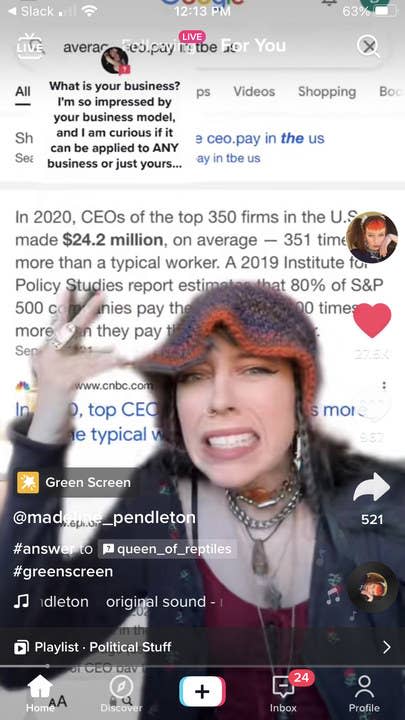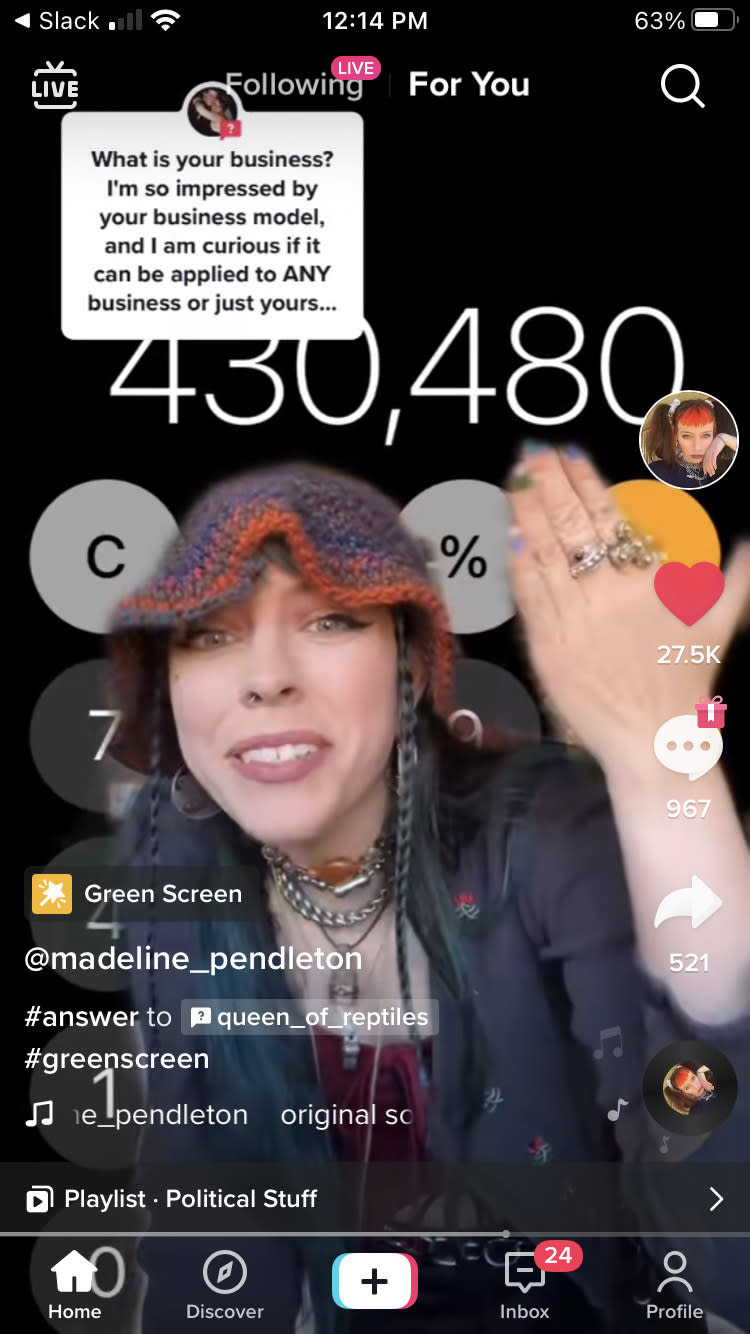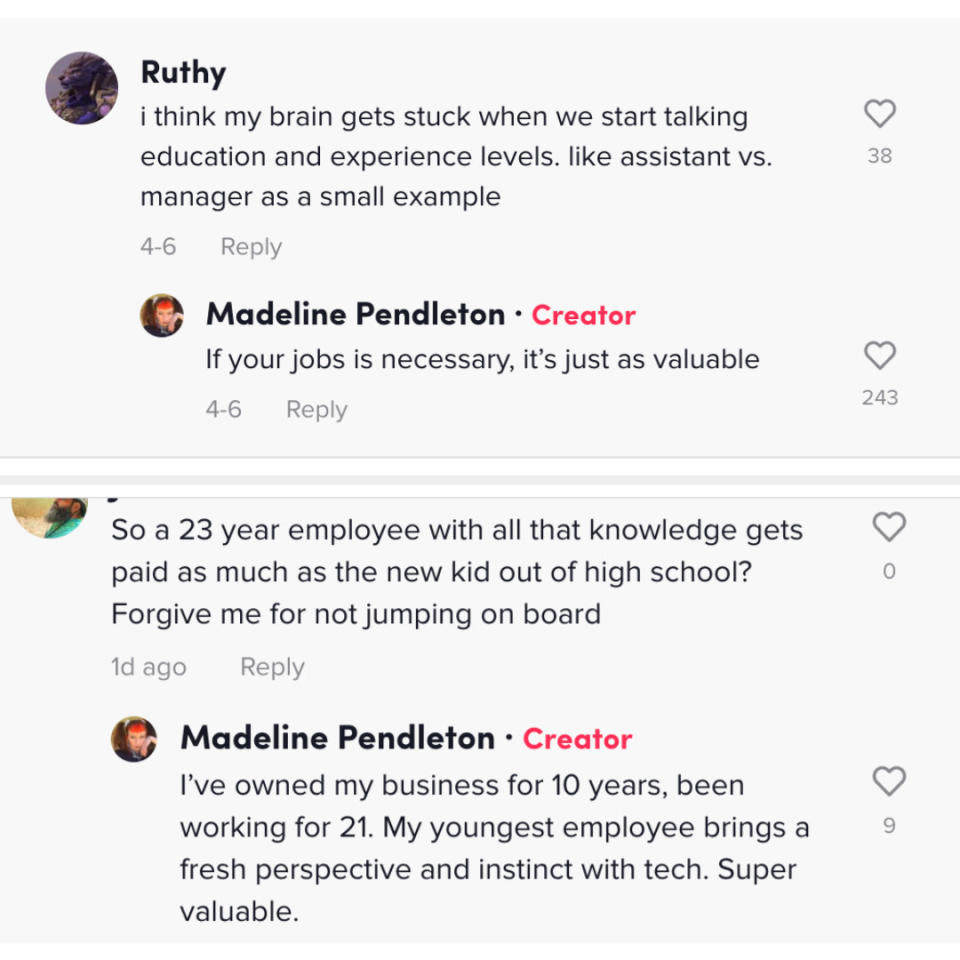This Business Owner Explained How She And All Her Employees Make $73k A Year, And I Wish More CEOs Would Do This
In 2021, the average CEO made 254 times as much money as the average worker. That's, like, a lot of money — way more than any one person truly ~needs~ in order to live a fulfilling life.
FX / Via giphy.com
So, when 35-year-old business owner Madeline Pendleton shared with TikTok how she pays employees and herself the same universal wage at her LA-based shop, Tunnel Vision, it got a lot of people's attention.
In the video, Madeline says, "I own a business and everybody there, including myself, we all earn the same pay. And this could definitely be done at absolutely any company without the company even having to spend more money. It's just income redistribution, really."
"It just means that instead of your boss making $24 million a year, which is the average for the top 350 firms in the US to pay their CEO in 2020 (while you make like $30k or whatever for work in the same business), you take everybody's salary in the whole place, then you average them out amongst the number of workers you have. Boom, company has a universal wage. I do this at my business and I'll show you how it works."
She even gets into the math and shows how this system works in practice. "We have 10 full-time employees, including me, and we just got our quarterly raises. So we all make around $73,000 a year. That means our company's annual payroll expenses for our full-time employees is $730,000."

"Let's say I wanted to be a total asshole and I wanted to pay everyone at my company minimum wage except for me. Where I live in Los Angeles, our minimum wage is currently $15 an hour, but July 1, it goes up to $15.96 an hour. Let's say I'm super benevolent, actually, and I round that up to a cool $16 an hour for all of my 'lowly' employees. That would mean their annual salaries would be $33,280 a year each. So there's nine of them, meaning that all of those salaries would make up a total of $299,520."
"Now remember, our annual payroll costs at the company are $730,000 a year just for the full-time workers. We have three part-time workers too, but I'm trying to keep the math simple."

"This means that if I paid all of them minimum wage (well, four cents above minimum wage, remember I'm being 'nice'), even at my small business with just 13 employees, my annual salary would be $430,000. It's ridiculous. This is what those CEOs are doing so they can make that $24 million a year while you guys make like $30k or whatever, and your company's got a lot more revenue than my little dinky business does."
Her video got a ton of reactions, with some people enthusiastically supporting Madeline's business model.

And others had a lot of questions about things like different job functions being valued differently and how this system works in terms of motivation.
